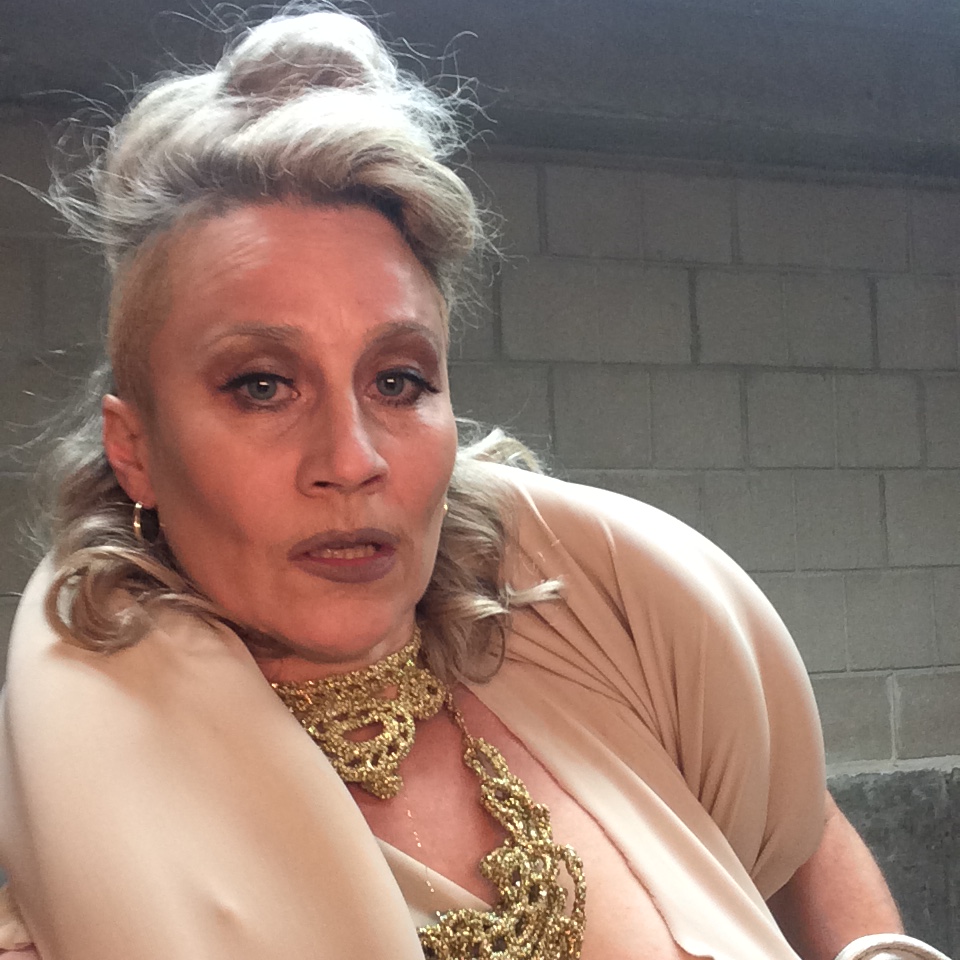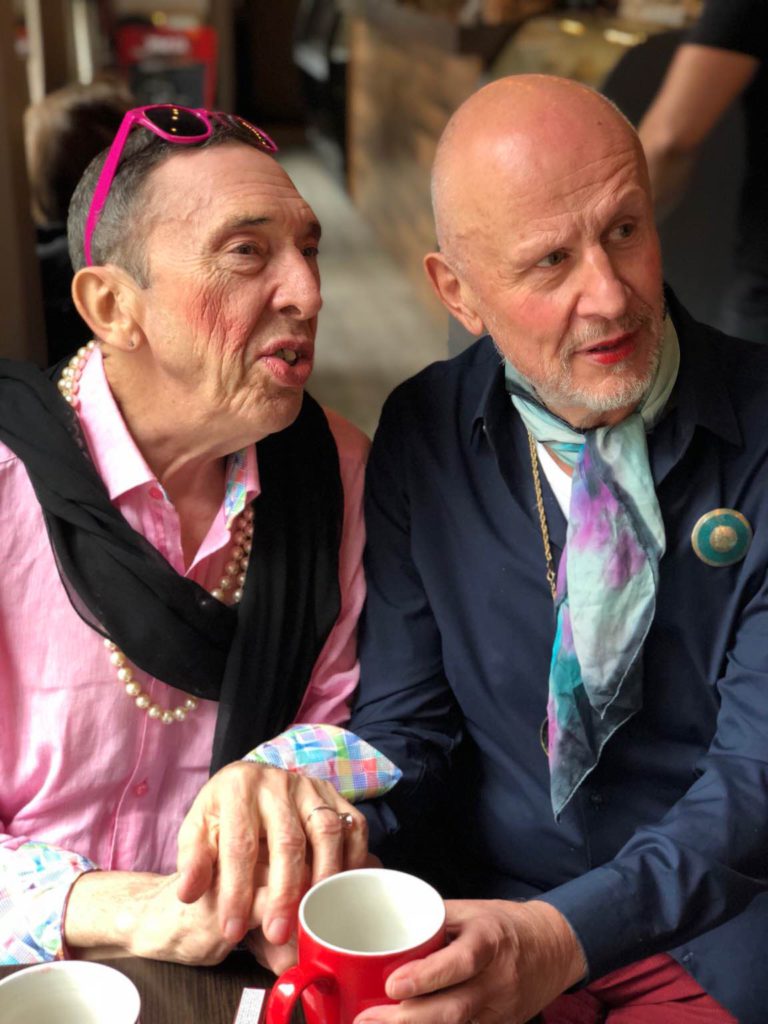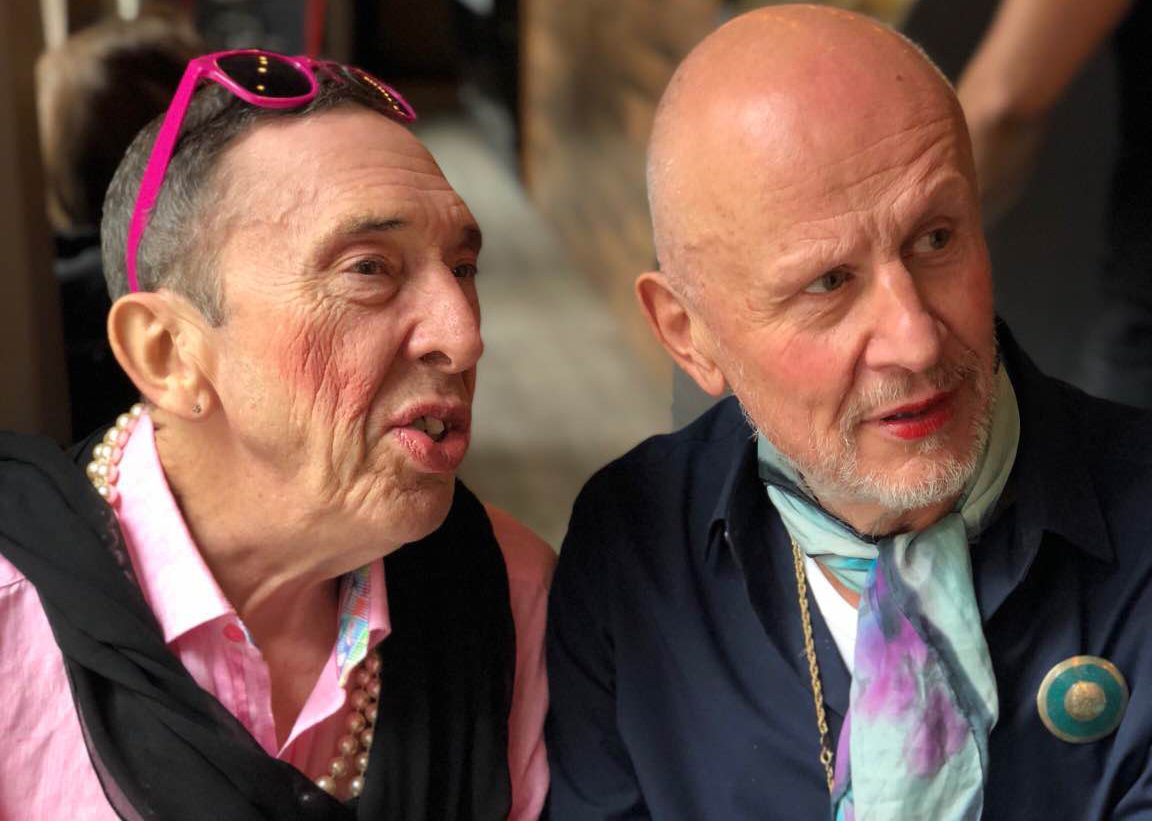Rhubarb is all about what’s fresh. Buddies’ annual festival assembles an eclectic collection of artists exploring radical ideas to push the limits of performance. In keeping with the spirit of innovation, it’s always offered critical space for younger artists, eager to finesse their craft and establish their careers.
However, with its upcoming 39th edition, the fest features something that hasn’t always been present: creators in the later stages of their careers.
Montreal-based interdisciplinary artist Alexis O’Hara often examines the problematics of the female body on stage. Her festival offering OUFF continues this track with a nod to the issue of aging. Sporting a ridiculously high pair of platforms and a dress fashioned from stretchy material, she creates a grotesque clown figure with sagging skin and curves that resembles the Venus of Willendorf.
Working with song, text, and playful audience interaction, her creepy character addresses issues of white supremacy, late capitalism, and youth culture from the perspective of an artist 25 years into her career.

Alexis O’Hara’s OUFF tackles the issue of aging. Credit: Courtesy Alexis O’Hara
“It’s a rapid download of the ugliest, most insecure parts of my psyche where I question my worth as a woman, a lover, a consumer, and a producer, within the optic of my waning power as I age,” O’Hara says.
Though it obviously has darker elements, the piece is delivered with her signature quirky sense of humour.
“Humour is the lube to grease the hole so you can get the bigger object in,” she adds. “If you’re laughing, you can deal with topics that, in a more serious tone, might cause blocks or triggers, so it creates an ambiance of sharing.”
Lois Weaver’s solo What Tammy Needs To Know About Getting Old And Having Sex explores aging from a different angle.
One half of legendary queer performance duo Split Britches (along with Peggy Shaw), Weaver has been working with her saucy-country-singer-turned-lesbian-performance-artist alter ego Tammy WhyNot for nearly 40 years. This time around, Tammy wants to discuss a decidedly awkward topic — old peoples’ sex lives.

Lois Weaver’s solo What Tammy Needs To Know About Getting Old And Having Sex is part of Rhubarb 2018. Credit: Courtesy Christa Holka
Like all of her work, the piece stems from Weaver’s need to explore something in her own life. In this case, it was entering her 60s and finding she’d lost nearly all interest in sex. Wondering whether it was the result of physical changes, her own psychology, or a cultural pressure for mature folks to keep it in their pants, she set out to learn all she could on the subject.
Needing the input of people at a similar stage in life, she turned to retirement home residents as her research subjects. She would drop by in full Tammy garb (think Dolly Parton on Casual Friday) and chat with folks about their experiences of sex over 60. She quickly found that despite whatever cultural taboos exist, senior centres are often hotbeds of erotic action.
Structured like a concert by an artist on her comeback tour, What Tammy Needs To Know pairs songs about sex with audience banter. Most versions also include a gaggle of local queer elders who serve as back-up singers. In between musical numbers, Weaver gabs with the crowd about sex and aging.
“Part of what’s been interesting about touring the show and meeting audiences is how younger people respond,” Weaver says.
“So many of them say that it made them feel better about getting older. As I’ve gotten older, I’ve realized all of us are just fumbling around in the dark when it comes to sex. I’d like for us to be able to talk out loud about our fears, our desires, and our needs, no matter what age we are.”
Creative duo Brian Cope and Charles Hayter came to both art making and queerness later in life. Having each spent several decades closeted and married, they met after coming out and joining a gay fathers group.
Hayter had studied theatre as an undergrad, but then opted for medical school and a career as a physician. Cope worked as an entrepreneur and had his first taste of making art post-retirement when Buddies’ artistic director, Evalyn Parry, invited him to be part of The Youth/Elders Project last year, a performance created by 13 queer folks at opposite ends of their lives.
In the wake of the project, Cope and Hayter were chatting over coffee and came to the topic of their mothers; specifically their relationship to their mothers as middle-aged gay men. Over the next few months, they would meet periodically in coffee shops and give themselves writing assignments to generate material.
In the resulting show Motherload, they perform an imagined interaction between their mothers; two women who never met, but had an eerie number of similarities in their lives.

Creative duo Brian Cope and Charles Hayter’s show Motherload is an imagined interaction between their mothers. Credit: Courtesy Charles H
Though the show is based on their own experiences, they also see it as a call to the broader queer community to rethink our relationship with our elders.
“Last Pride we saw the first senior Pride party, which was an important nod to some changes that are going on,” Cope says.
“The ageism that’s been rampant in our community for so long is starting to shift, I think because we’re more aware that we’re all getting older and that aging is a reality everybody has to face.”
“I think both of us realized as we entered midlife that when we were younger we were very focused on ourselves, bordering on a kind of narcissism,” Hayter adds. “We didn’t give as much sympathy to people like us who were alive when we came out, and this show is kind of a way of redressing that.”


 Why you can trust Xtra
Why you can trust Xtra


